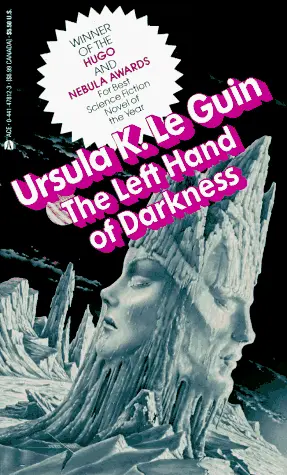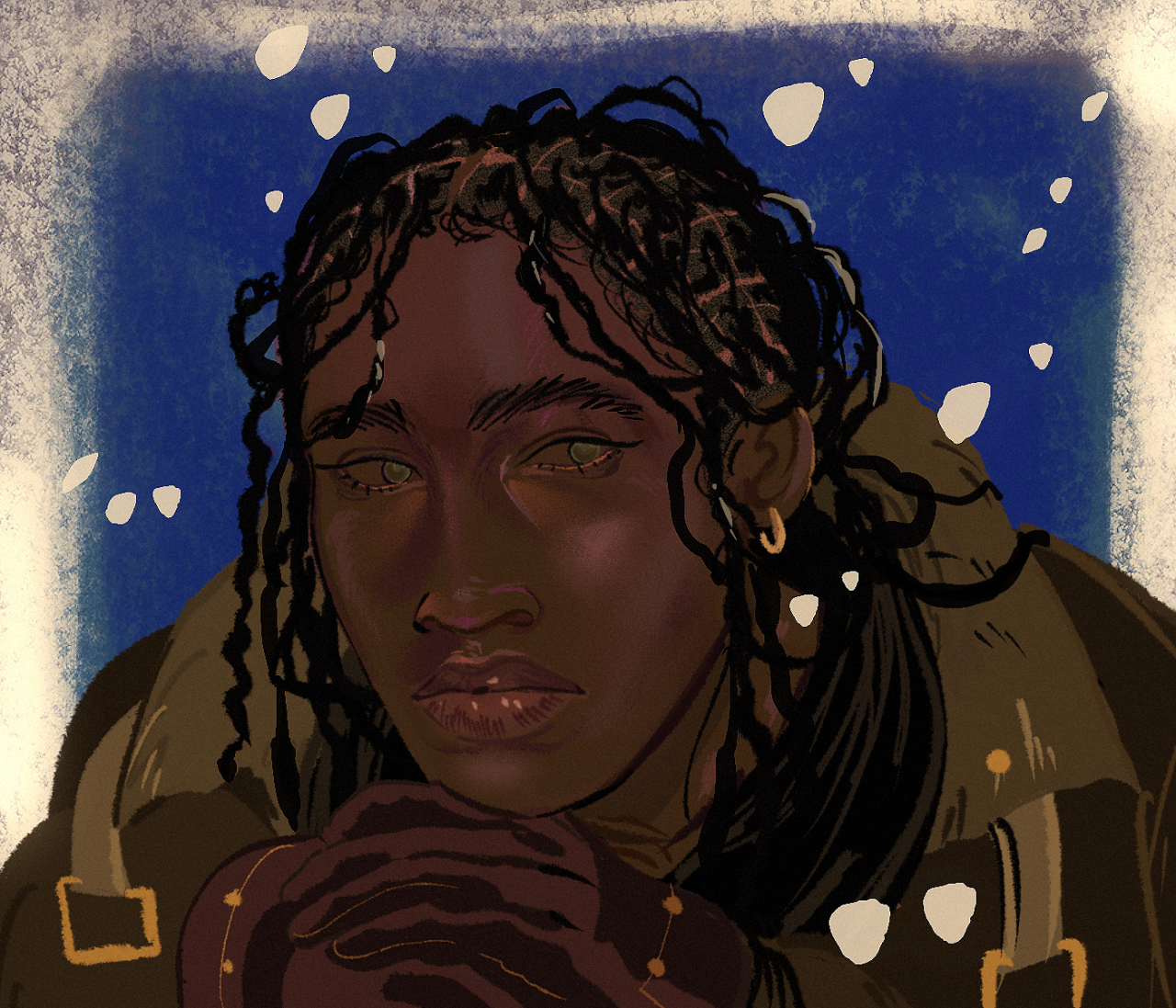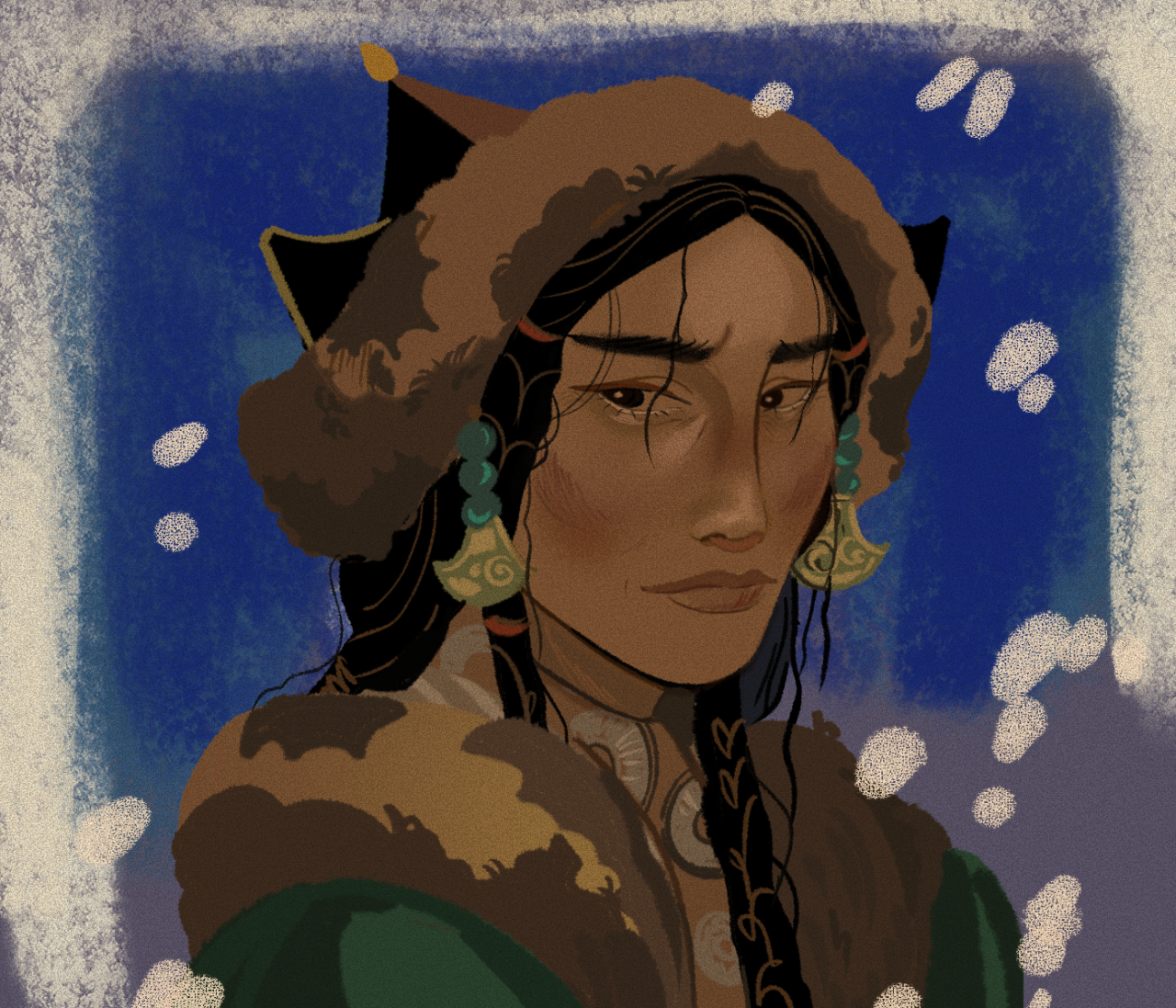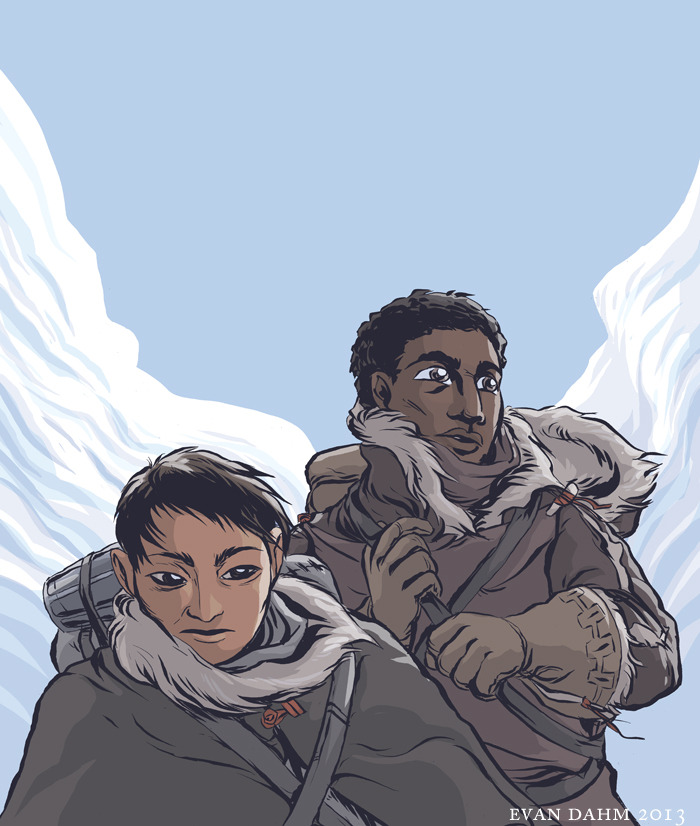The Left Hand of Darkness by Ursula K. Le Guin: A Review

I first read this book in 2019. It was one of only a handful I brought with me during a 6-month stay in Taiwan and I had a copy that looked just like the picture included here. I'd always heard this book whispered about, almost with reverence, among fans and scholars of queer speculative fiction. It was supposed to be the book that changed the game, but at this point I didn't really know much about the story itself beyond that. I'd read A Wizard of Earthsea and a few of Le Guin's short stories, but I didn't have a strong sense of what she was "about" so to speak.
The edition I had included the 1976 Introduction, thank god, and again, thank god, on a whim I decided to actually read it, despite usually skipping over forewards and preambles and introductions and sometimes even prologues. I was laying down in the cramped little twin bed in our friends' spare bedroom, reading with increasing...well, I don't know the emotion exactly, but it was deep. It felt like my ribcage was being squeezed, my fingers were getting all tingly, I kept having to stop reading to just sit there and stare up at the ceiling a moment to compose myself.
I can't explain the effect this introduction had on me, just that it felt like a deep affirmation of so much of how I'd been thinking about my own craft. "What's the point of writing fantasy stories?" I'd had to wonder at various points. Besides my own enjoyment of them, there was no clear reason, no real thing I could point to that could explain why it felt so essential to focus my energy on stories about people, places, and realities that could never be. But here it was, in print, clear as day, like she'd plucked it from my own heart, bypassing my own attempts at articulation:
The only truth I can understand or express is, logically defined, a lie. Psychologically defined, a symbol. Aesthetically defined, a metaphor.
Then:
The artist deals with what cannot be said in words.The artist whose medium is fiction does this in words. The novelist says in words what cannot be said in words.
And of course, famously:
I talk about the gods; I am an atheist. But I am an artist too, and therefore a liar. Distrust everything I say. I am telling the truth.
The truth, the engine of all storytelling, laid bare with its machinery exposed and glistening. I felt like I'd been entrusted with a great and terrible secret, all before I'd even begun the novel itself.
Given that introduction, I started the book with, I think, a deepened sensitivity to what she was trying to say, to the truths that came out of the character's mouths and minds without them being able to say as much directly; without them even realizing the thing they had touched upon.
This book is about being human in the way that only books about inhumans can ever be. It's about social and political power, and the way they ripple out into everything, everyone. It's about the ways there is no fixed identity without the context of the world we live in. It's about the ways we reach each other across difference and the ways we remain untranslatable to each other, to ourselves even. It's about every individual being an island. And it's about the ways we will never ever stop casting out to sea in search of others with whom to share our archipelago.
the story

The book begins with Genly Ai, a human from Earth who has been tasked to bring a newly discovered populated planet called Gethen into the fold of a loose federation of galactic civilizations called the Ekumen. At the beginning of the book, the events of the story have already occurred, and he relates them to his personal log for posterity, telling us that:
"I'll make my report as if I told a story, for I was taught as a child on my homeworld that Truth is a matter of the imagination."
Genly is welcomed as a guest of Karhide, one of the two main nations on this planet (the other being Orgoreyn). He has been briefed on the essentials of this planet's culture and language: he anticipates the planet's icy climate, he speaks Karhidish, he knows that the people on this planet have no notion of "man" and "woman" but instead vary their sexual presentation based on biological cycles, and he understands that society here is bound up in complex and subtle rules of communication known as shifgrethor. Though he knows all this before arriving, he still struggles to communicate, to understand the expectations and roles of the people around him, and to navigate this world that is structured so differently than any he's ever known.

Of particular interest and frustration to him is an individual named Therem Estraven—an advisor to the King of Karhide, whose intentions Genly finds himself constantly struggling to decipher. Genly notes his mistrust of Estraven, his dislike of his apparent indirectness, of his unplaceable gender presentation, his inscrutable interest in Genly's mission. Suddenly, Estraven is forced to leave, having lost favor with the King, and leaving Genly to hope that this might mean a better chance of convincing the King to join the Ekumenical Order.
Genly explores various corners of Karhide as he awaits the King's decision. Finally, becoming disillusioned with the indirectness of shifgrethor, the slow mechanations of political power in Karhide, he crosses the border to Orgoreyn, in hopes that this nation will prove more amenable to the invitation.
At first, he finds Orgoreyn much more agreeable. The people there greet him warmly, they're encouraging about the prospects of their joining, they have no notion of shifgrethor, which Genly believes has obscured so many of his interactions with others back in Karhide. But things change rapidly as the ongoing semi-cold-war between the two nations heats up, and Genly is arrested, then shipped off to a labor camp in the far north, where he and his fellow prisoners are drugged, kept complacent as they waste away. Genly is sure he'll die here—and then Estraven arrives.
The rest of the book follows the two as they trek over the glacial north of the planet, trying to reach the border of Karhide and survive the harsh conditions.
It's at this point that Genly realizes he's misunderstood most everything about Estraven's intentions, and that perhaps he's misjudged Estraven as a person too. Over their long season together, working to get back to Karhide, the two become close, almost intertwined, their relationship teetering at the midpoint of familial and platonic and romantic.
Structurally, it feels almost like two distinct novels—one about Karhide and one about the ice. The story is interspersed as well with legends, religious texts, and stories from Gethen culture, shading in the meanings of interactions and the history of certain cultural norms, as well as deepening our sense that we can never access the true nature of this place, that there will always be a hundred shades of distance between us and the history that's carried in every conversation.
At the same time, however, we see bright flecks of familiar colors, familiar shapes. These stories remind us of the impassable distance between our own context and a Gethen's, while also showing us the closeness, the inextricability of their experiences with our own. In our shared being, our shared experience of sapience, we have to much in common that we can reach out and touch one another, and feel that we have, in fact, known each other all our lives. Their myths have shapes like ours, their heartaches feel the same. We see similarity and difference and sameness and otherness and it's in having both, the darkness and the light, that we are made whole.
The themes of duality and merged halves are made pointed in the iteration of a famous Gethen poem, from which the book gets its title:
Light is the left hand of darknessand darkness the right hand of light.
Two are one, life and death, lying
together like lovers in kemmer,
like hands joined together,
like the end and the way.
I've reread it in its entirety only once, but I hope to get into a habit of rereading it every year or so, because it's a story that unfolds new things every time I dwell on it, every time I so much as flip through it. I also hope to re-acquire a copy like that original one, which was promptly lost by the first person I breathlessly lent it to, and has since been replaced by a copy with a more contemporary, less exciting cover.
If there's any story worth reading on this planet, it's this one. An exaggeration, perhaps, but I'm an artist and therefore a liar, after all. Distrust everything I say. I am telling the truth.
